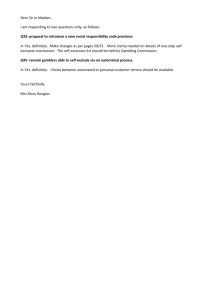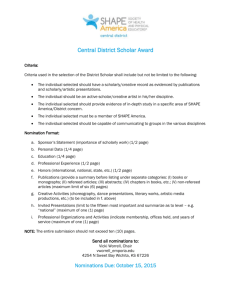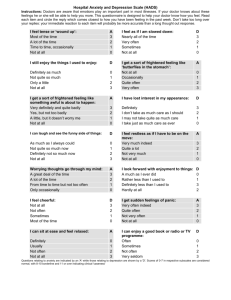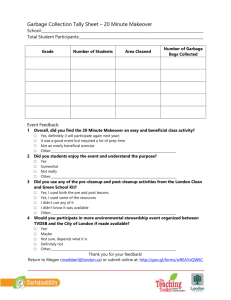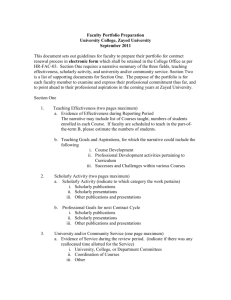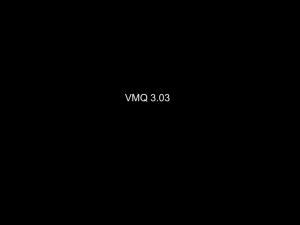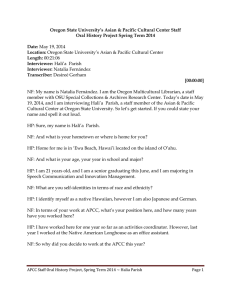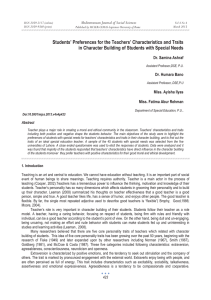Reflective Cover Letter
advertisement
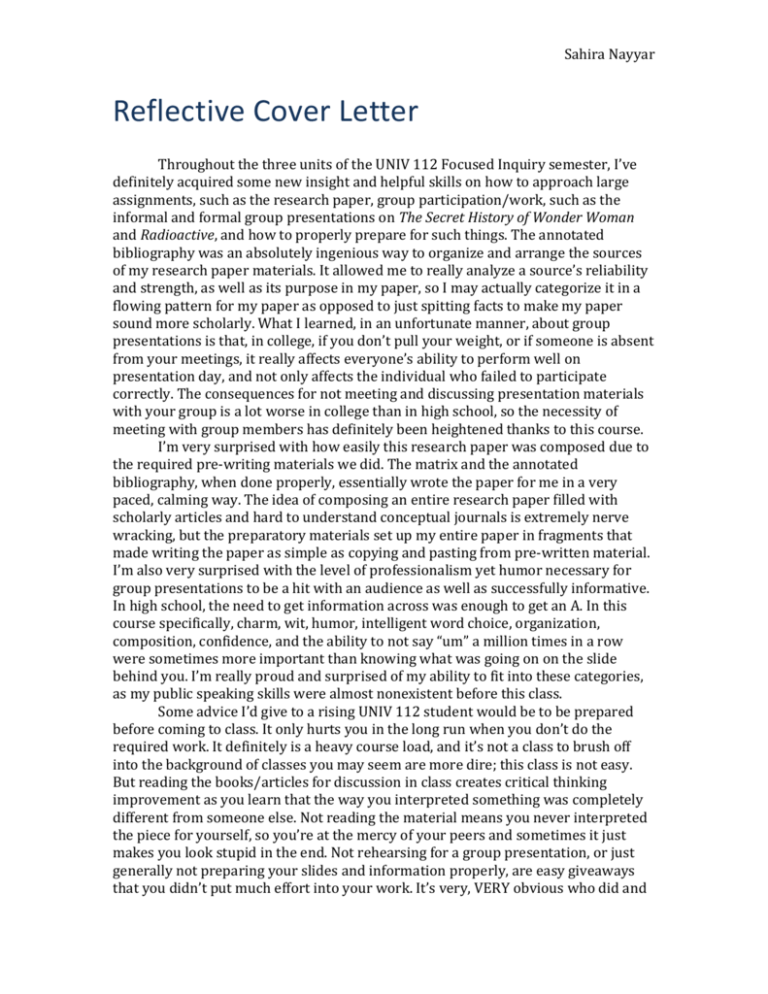
Sahira Nayyar Reflective Cover Letter Throughout the three units of the UNIV 112 Focused Inquiry semester, I’ve definitely acquired some new insight and helpful skills on how to approach large assignments, such as the research paper, group participation/work, such as the informal and formal group presentations on The Secret History of Wonder Woman and Radioactive, and how to properly prepare for such things. The annotated bibliography was an absolutely ingenious way to organize and arrange the sources of my research paper materials. It allowed me to really analyze a source’s reliability and strength, as well as its purpose in my paper, so I may actually categorize it in a flowing pattern for my paper as opposed to just spitting facts to make my paper sound more scholarly. What I learned, in an unfortunate manner, about group presentations is that, in college, if you don’t pull your weight, or if someone is absent from your meetings, it really affects everyone’s ability to perform well on presentation day, and not only affects the individual who failed to participate correctly. The consequences for not meeting and discussing presentation materials with your group is a lot worse in college than in high school, so the necessity of meeting with group members has definitely been heightened thanks to this course. I’m very surprised with how easily this research paper was composed due to the required pre-writing materials we did. The matrix and the annotated bibliography, when done properly, essentially wrote the paper for me in a very paced, calming way. The idea of composing an entire research paper filled with scholarly articles and hard to understand conceptual journals is extremely nerve wracking, but the preparatory materials set up my entire paper in fragments that made writing the paper as simple as copying and pasting from pre-written material. I’m also very surprised with the level of professionalism yet humor necessary for group presentations to be a hit with an audience as well as successfully informative. In high school, the need to get information across was enough to get an A. In this course specifically, charm, wit, humor, intelligent word choice, organization, composition, confidence, and the ability to not say “um” a million times in a row were sometimes more important than knowing what was going on on the slide behind you. I’m really proud and surprised of my ability to fit into these categories, as my public speaking skills were almost nonexistent before this class. Some advice I’d give to a rising UNIV 112 student would be to be prepared before coming to class. It only hurts you in the long run when you don’t do the required work. It definitely is a heavy course load, and it’s not a class to brush off into the background of classes you may seem are more dire; this class is not easy. But reading the books/articles for discussion in class creates critical thinking improvement as you learn that the way you interpreted something was completely different from someone else. Not reading the material means you never interpreted the piece for yourself, so you’re at the mercy of your peers and sometimes it just makes you look stupid in the end. Not rehearsing for a group presentation, or just generally not preparing your slides and information properly, are easy giveaways that you didn’t put much effort into your work. It’s very, VERY obvious who did and Sahira Nayyar did not spend at least an hour putting together a few clipart pictures and cue words to help their project and who spent 10 minutes putting an entire dialogue on a slide to be read off of in class. Lastly, don’t slack off on pre-paper materials. It takes a lot of effort to pass something crappy off as gold, and in the end, you’re just screwing yourself over, because now you have to use the crappy, useless resource in front of you to write an entire, well organized, scholarly essay. Which means, basically, you’re not getting above a C no matter how hard you try. So just work hard and the A will be there. Something to take away from this course is definitely my ability to receive and interpret feedback. Coming from high school with a big ego about my writing due to my inability to get below an A in any English-type classes, it was really hard for me to accept criticism and negative feedback on my writing because I always interpreted what I wrote as nothing below an A standard. But I could definitely see where people were heading with the critiques I was given and it helped me take the edge off my writing and add more of my own voice into it. As Sammie, Kat, and Adriane told me, it’s not always about sounding smart and scholarly in what you present, but that the information is organic and interesting. I will definitely take that away for my future presentations, papers, and essays for even my STEM classes.
